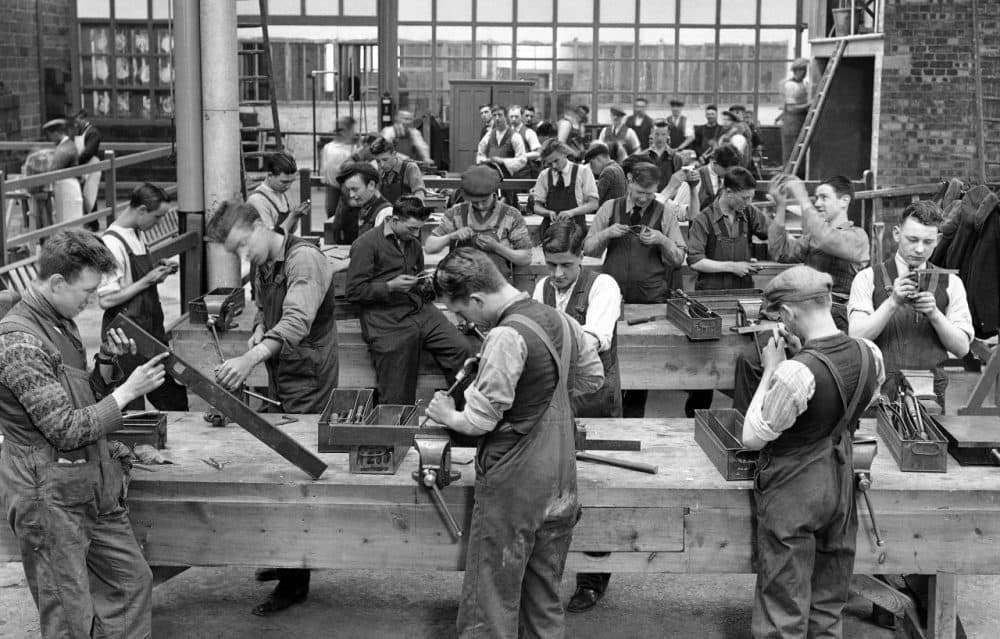Advertisement
What Happens If Workers Become Obsolete?
Resume
The rapid rise in technology and machines has some experts predicting that workers could become obsolete. As Derek Thompson writes in a cover article for The Atlantic, futurists have often looked at this in a positive way — with people having more free time for leisure.
But there are of course questions of what it would mean economically, and also culturally. Thompson writes that it would bring about a great social and cultural transformation.
"Industriousness has served as America’s unofficial religion since its founding," he writes. "The sanctity and preeminence of work lie at the heart of the country’s politics, economics and social interactions. What might happen if work goes away?"
Thompson speaks with Here & Now's Jeremy Hobson about some of the implications.
Guest
- Derek Thompson, senior editor at The Atlantic. He tweets @DKThomp.
This segment aired on June 29, 2015.